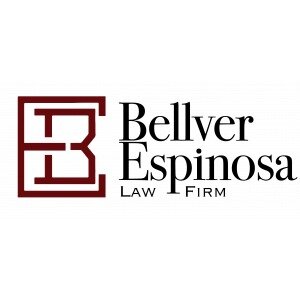Best Hiring & Firing Lawyers in Puerto Rico
Share your needs with us, get contacted by law firms.
Free. Takes 2 min.
Or refine your search by selecting a city:
List of the best lawyers in Puerto Rico
About Hiring & Firing Law in Puerto Rico
Hiring and firing laws in Puerto Rico are governed by a combination of federal and local regulations. As a United States territory, Puerto Rico adheres to federal employment standards while incorporating its unique local laws, chiefly outlined in the Puerto Rico Labor Transformation and Flexibility Act, also known as Act No. 4 of 2017. This framework is designed to protect both employers and employees by setting clear guidelines for lawful employment practices, focusing on non-discrimination, fair compensation, and appropriate termination procedures.
Why You May Need a Lawyer
While many aspects of hiring and firing can often be managed without legal intervention, there are numerous scenarios where legal advice becomes necessary:
- Non-compliance Issues: If an employer or employee believes that there has been a violation of labor laws.
- Wrongful Termination Claims: When an employee feels they have been terminated unfairly or unlawfully.
- Drafting or Reviewing Employment Contracts: Ensuring that employment contracts comply with local laws and protect all parties’ rights.
- Discrimination Cases: Legal assistance may be needed if there are claims of discrimination in hiring or firing.
- Unemployment Benefits Disputes: Navigating claims or appeals related to unemployment benefits.
Local Laws Overview
Puerto Rico has specific employment laws that differ in some respects from U.S. federal laws:
- At-Will Employment: Unlike many U.S. states, Puerto Rico does not generally recognize at-will employment, thus requiring a just cause for termination.
- Severance Pay: Employees terminated without cause may be eligible for severance pay under the Puerto Rico Severance Pay Law.
- Employment Discrimination: Local laws prohibit discrimination based on race, color, sex, age, social origin or condition, political affiliation, or religious ideology.
- Employment Contracts: While verbal agreements can be legally binding, written contracts are advised for clarity and enforcement.
- Labor Relations Board: This entity handles disputes arising from collective bargaining agreements.
Frequently Asked Questions
Is "at-will" employment recognized in Puerto Rico?
No, Puerto Rico generally requires "just cause" for employee terminations.
What constitutes "just cause" for termination?
"Just cause" may include misconduct, inefficiency, or other specified reasons outlined in company policies or labor laws.
Are part-time employees entitled to the same protections as full-time ones?
Yes, most labor laws apply to part-time employees as well as full-time employees, though specific benefits may vary based on hours worked.
Can an employer terminate an employee for political beliefs?
No, discrimination based on political affiliation is prohibited in Puerto Rico.
What is required for legal compliance when hiring in Puerto Rico?
Compliance requires adherence to non-discriminatory practices, proper documentation, and alignment with local wage ordinances and conditions.
How can an employee contest a wrongful termination?
Employees can file a complaint with the Puerto Rico Department of Labor and seek legal advice to explore possible remedies.
When is severance pay mandatory?
Severance pay is generally required when an employee is terminated without "just cause."
Are there specific laws regarding layoffs?
Yes, Puerto Rico law requires adherence to certain conditions and possibly severance payment in the event of mass layoffs.
What are common grounds for discrimination claims?
Claims often arise from perceived discrimination due to race, gender, age, religion, or disability.
Can companies set mandatory retirement ages?
Generally, mandatory retirement policies are not permissible unless a retirement age is reasonably justified by the job function.
Additional Resources
For further assistance, the following resources can be helpful:
- Puerto Rico Department of Labor and Human Resources
- U.S. Equal Employment Opportunity Commission (EEOC)
- Puerto Rico Legal Services, Inc.
- Local bar associations that specialize in labor law
Next Steps
If you find yourself needing legal assistance in hiring and firing matters, consider the following steps:
- Consult with a specialized employment lawyer experienced in Puerto Rico labor laws.
- Gather and organize all relevant documents and communication related to the issue.
- Contact local governmental bodies or legal aid services for guidance and potential representation.
- Ensure you are informed about both your rights and obligations under local and federal employment laws.
Lawzana helps you find the best lawyers and law firms in Puerto Rico through a curated and pre-screened list of qualified legal professionals. Our platform offers rankings and detailed profiles of attorneys and law firms, allowing you to compare based on practice areas, including Hiring & Firing, experience, and client feedback.
Each profile includes a description of the firm's areas of practice, client reviews, team members and partners, year of establishment, spoken languages, office locations, contact information, social media presence, and any published articles or resources. Most firms on our platform speak English and are experienced in both local and international legal matters.
Get a quote from top-rated law firms in Puerto Rico — quickly, securely, and without unnecessary hassle.
Disclaimer:
The information provided on this page is for general informational purposes only and does not constitute legal advice. While we strive to ensure the accuracy and relevance of the content, legal information may change over time, and interpretations of the law can vary. You should always consult with a qualified legal professional for advice specific to your situation.
We disclaim all liability for actions taken or not taken based on the content of this page. If you believe any information is incorrect or outdated, please contact us, and we will review and update it where appropriate.
Browse hiring & firing law firms by city in Puerto Rico
Refine your search by selecting a city.









